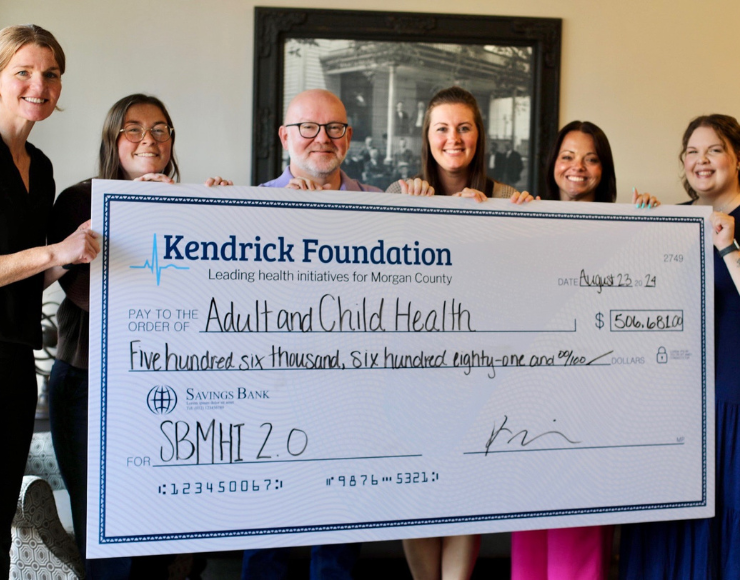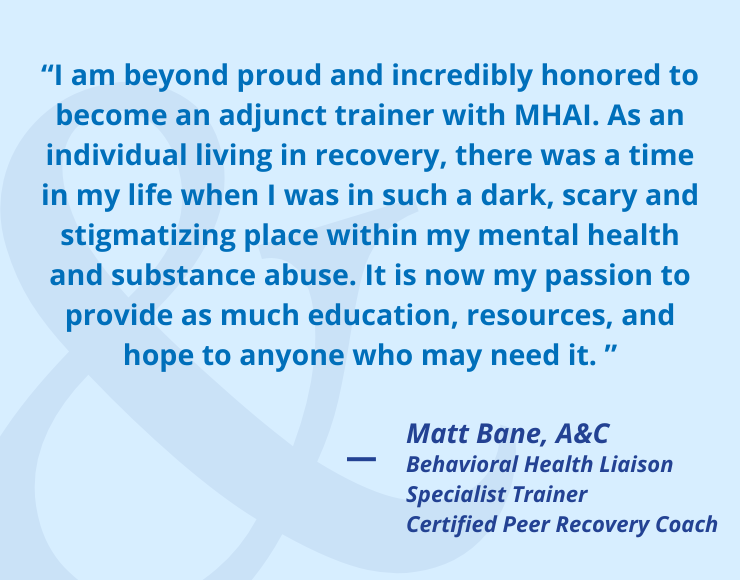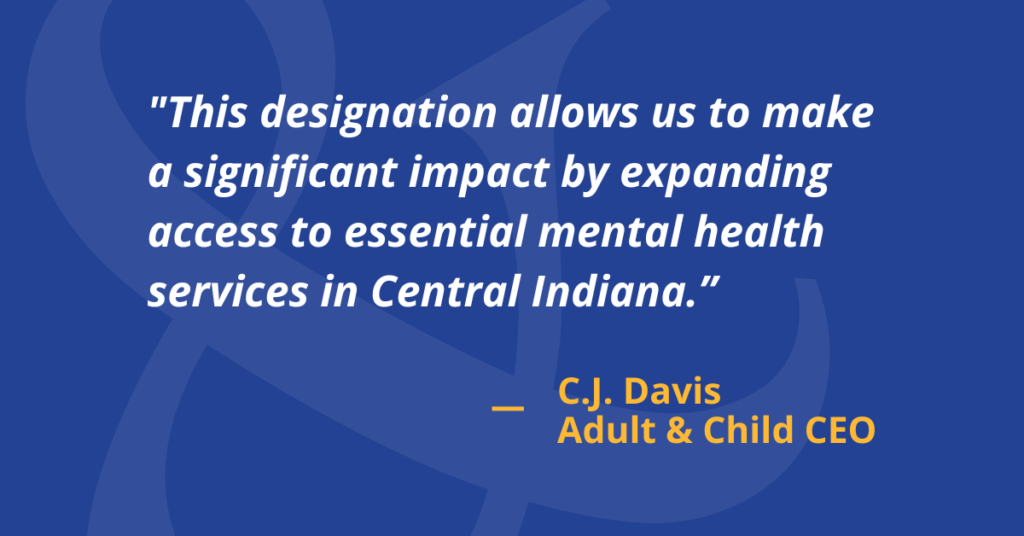KENDRICK FOUNDATION ANNOUNCES SCHOOL-BASED MENTAL HEALTH INITIATIVE 2.0

The Kendrick Foundation is pleased to announce the school-based mental health initiative (SBMHI) 2.0. This is a continuation of a successfully established partnership between Adult & Child Health, Centerstone, Youth First, and the county’s four public school systems. This initiative furthers our commitment to improving the mental health of all Morgan County residents. “SBMHI 2.0 has involved an extension of a tremendous amount of work by our grantees and schools over the last few years,” said Amanda Walter, M.D., Kendrick Foundation Board President. “We launched the initial three-year SBMHI in July 2021 to address increased mental health challenges heightened by the pandemic and greater societal issues. Based on the success and continued community benefits of this initiative, we are excited to continue building upon and supporting this effort for another three years.”In December 2021, the U.S. Surgeon General issued an advisory highlighting the urgent need to address the nation’s youth mental health crisis, outlining the pandemic’s unprecedented impacts on the mental health of America’s youth and families, as well as the mental health challenges that existed long before the pandemic. According to the U.S. Surgeon General, recent national surveys of young people have shown alarming increases in the prevalence of certain mental health challenges. Mental health is shaped by many factors, from genes and brain chemistry to relationships with family and friends, neighborhood conditions, and larger societal forces and policies. In Morgan County, adults report an average of 5.3 poor mental health days per month and 17% report frequent mental distress. Morgan County has higher rates of death by suicide than the state. Many Morgan County residents also lack adequate access to mental health providers. According to the National Alliance on Mental Illness, many mental health conditions first appear in youth and young adults, with 50% of all conditions beginning by age 14 and 75% by age 24. One in six youth have a mental health condition, such as anxiety or depression, but only half receive any mental health services. Early treatment is effective; it can help young people stay in school and on track to achieving their life goals. In fact, the earlier the treatment, the better the outcomes and lower the costs. Untreated or inadequately treated mental illness can lead to high rates of school dropout, unemployment, substance use, arrest, incarceration, and early death. Schools can play an important role in helping children and youth get help early. Schools also play a vital role in providing or connecting children, youth, and families to services. School-based mental healthservices bring trained mental health professionals into schools; this helps individual youth and also serves to connect youth and families to more intensive resources in the community. “Our grantees and local educational institutions continue to go above and beyond to support the mental health needs of youth and families by providing mental health services, supports, and resources to thousands of Morgan County residents, reducing stigma, and creating a culture that supports mental health and wellbeing for all,” said Keylee Wright, M.A., Kendrick Foundation Executive Director. “Maintaining healthy children and families requires all of society—including policy, institutional, and individual changes in how we view and prioritize mental health.” As part of the SBMHI 2.0, students across each public school district in Morgan County will continue to have access and opportunity to participate in supportive voluntary mental health services consisting of individual, family, group, and/or case management provided by: Adult & Child Health – Mooresville Consolidated School Corporation, Metropolitan School District (MSD) of Martinsville, and Monroe-Gregg School District Centerstone – Eminence Community School Corporation Youth First – Mooresville Consolidated School Corporation and MSD of Martinsville School-based and school-linked mental health services reduce barriers for youth and families in obtaining needed treatment and supports, especially for communities with decreased access to mental health providers. School-based mental health programs are a voluntary service approved through caregiver consent and delivered by trained mental health professionals, such as psychologists, counselors, and social workers. Funding for the SBMHI includes: Initial Project Period (July 1, 2021 through June 30, 2024) Total expenditure: Nearly $4 million Kendrick Foundation contribution: Over $1.6 million SBMHI 2.0 (July 1, 2024 through June 30, 2025) Total expenditure: Nearly $1.8 million Kendrick Foundation contribution: Over $620,000 Funding Sources Kendrick Foundation Collaborating mental health grantee organizations Morgan County educational institutions Government grants and contracts Private funding Formed from the proceeds of the sale of the Kendrick Memorial Hospital in 2001, the Kendrick Foundation invests in conditions that support the physical and mental health of all Morgan County residents. To learn more about how the Kendrick Foundation is leading health initiatives for Morgan County, please visit kendrickfoundation.org.
Adult & Child Health, Mental Health America of IndianaAdvancing Peer Recovery Efforts Statewide

Integrated healthcare provider Adult & Child Health (A&C), ICAADA, and MHAI Stanley W. DeKemper Training Institute (MHAI SWD TI) have entered into an Agreement for Educational Partnership to advance the recovery support workforce within the state of Indiana by increasing training opportunities through MHAI Stanley W. DeKemper Training Institute for Indiana residents to become certified as Certified Peer Recovery Coaches (CPRCs) or Certified Recovery Coaches (CRCs) through ICAADA. This effort is one of the commitments made by A&C as a recipient of the DMHA Workforce Recruitment and Retention Innovation Grant through which A&C was awarded $750,000 in fall of 2023. “This groundbreaking partnership between Adult & Child, ICAADA and MHAI SWD Training Institute shows their passion for increasing the recovery support workforce and, most importantly, increasing accessibility to care across Indiana. By using trusted, and vetted, recovery support training and credentialing organizations, along with a respected recovery support provider such as Adult & Child, we will be able to create a workforce development structure that increases the recovery support workforce while supporting sustainability of the recovery support profession,” said MHAI Vice President of Education and Credentialing Justin Beattey. In January 2023, the annual National Survey on Drug Use and Health (NSDUH) reported 9.2 million people aged 12 years or older had misused opioids in 2021, 94 percent of which did not receive any treatment; additionally, adults aged 18 to 25 had the highest rate of mental illness yet the lowest rate of treatment. The need for addictions recovery and mental health services is tremendous and increasing the number of people who are trained and qualified to provide those services through the peer support approach is critical to closing the gap. Additionally, peer support is proven to be an affective form of recovery treatment, resulting in reduced re-hospitalizations, fewer days spent in inpatient care and increased quality of life (Evidence for Peer Support, MHA, 2019). CPRCs provide recovery support and care for individuals who are experiencing challenges with mental health and/or substance use disorders by connecting with others through a direct lived experience of similar challenges. While CRCs do not have direct lived experience, they have often been indirectly affected by addiction or mental illness through a family member or friend. Direct nor indirect experience is a requirement for individuals to become CRCs – many folks in this role simply have a passion for helping those in need. “I am beyond proud and incredibly honored to become an adjunct trainer with MHAI. As an individual living in recovery, there was a time in my life when I was in such a dark, scary and stigmatizing place within my mental health and substance abuse. It is now my passion to provide as much education, resources, and hope to anyone who may need it. This new program not only provides me with another opportunity to do just that, but it also helps to emphasize the importance of peers in behavioral health throughout the state. As a representative of my amazing employer Adult and Child Health and of MHAI, it is my mission to act as a voice for anyone who might not yet have found theirs and to do this to the best of my ability every single day – it is a great honor to be able to do so,” said Matt Bane, A&C, who will be one of two training facilitators. # # # About Adult & Child Health Adult & Child Health, a Joint Commission accredited community mental health center and Federally Qualified Healthcare Center Look Alike (FQHC) in Central Indiana, strives for equitable, caring communities where all people can live healthy, purposeful lives. Services include behavioral health, primary care, social services, and addictions treatment, all of which are designed to provide quick, affordable, and efficient access to high quality care. Adult & Child is an affiliate and member organization of Brightli, a network of health providers across the Midwest. Please visit adultandchild.org for more information. About ICAADA ICAADA, a subsidiary of Mental Health America of Indiana, provides credentialing for behavioral health professionals. ICAADA provides behavioral health professionals with credentials, membership, and advocacy that validate the professionals’ competencies to provide person-focused, evidence-based behavioral health services. About MHAI Stanley W. DeKemper Training Institute The MHAI Stanley W. DeKemper Training Institute is our partner in providing quality education for behavioral health professionals and the community. The Training Institute works tirelessly to ensure that the education provided meets the standards and competencies required for aspiring and current behavioral health professionals, to maximize the outcomes for the populations they serve.
A&C Aligns with Leadership Model of Parent Company Brightli

Integrated healthcare provider Adult & Child Health, a Brightli affiliate, has announced the promotions of Dr. Christne Negendank, MD, MBA, CCHP to Indiana Region President and Dr. Jessica Stembel, PsyD, HSPP, IMH-E to Indiana Region Chief Operating Officer. Adult & Child joined Burrell Behavioral Health, Preferred Family Healthcare, Southeast Missouri Behavioral Health, and other subsidiaries under the Brightli umbrella in March 2024, boosting the parent organization’s employee count to over 6,000 individuals across seven regions. The promotions of Dr. Negendank and Dr. Stembel align A&C with Brightli’s regional leadership model, which provides operational autonomy for each region to ensure services and operations are meeting the unique needs of the community. As President, Dr. Negendank provides strategic direction and leadership of A&C and the Indiana Region, assisting in the execution of short-term and long-term goals while engaging with community partners and leaders to help drive A&C’s continued success and growth in Central Indiana. “I am honored to have been given the opportunity to serve as President of Adult & Child Health. I look forward to continuing to work with Adult & Child’s dedicated staff who strive daily to provide compassionate and high-quality whole health care. Adult & Child Health is well-positioned to continue its 75-year legacy of excellence and innovation in health care and social services. We look forward to expanding our services and programming through strategic initiatives, community partnerships, and advocacy efforts. Our goal is to not only provide treatment to those in our local communities but also to help advocate for improved health care for all Hoosiers,” said Dr. Negendank. Dr. Negendank recently celebrated seven years of employment at A&C having joined the organization in 2017 as Associate Medical Director of Psychiatry before moving into the role of Chief Medical Officer. During her tenure, Dr. Negendank led the development and implementation of A&C’s Medication Assisted Treatment (MAT) program for substance use disorders. She has also helped A&C make tremendous strides in integrating primary and psychiatric care by strengthening working relationship among prescribers and fostering collaboration between medical and therapy staff. As Chief Operating Officer, Dr. Stembel oversees the day-to-day operations of A&C and the Indiana Region, facilitating teamwork across the organization’s leaders to ensure effective delivery of top-quality services to Central Indiana communities. “As Chief Operating Officer, I am incredibly excited about A&C’s opportunity to be a leader in the state’s transformation to the Certified Community Behavioral Health Clinic (CCBHC) model, and the evolution of mental health, substance abuse treatment and primary healthcare. Emphasizing community partnerships through CCBHC is not just a strategic interchange but a commitment to holistic care. Together, we can foster a system of care where our Hoosiers and communities can thrive,” said Dr. Stembel. Dr. Stembel joined A&C in 2015 as a clinical psychologist providing oversight to multiple service lines and treatment teams while continuing direct clinical care. Since 2018 she has served A&C as Chief Clinical Officer, overseeing continuous quality improvement, behavioral health, primary care accreditation and corporate compliance. During her tenure, Dr. Stembel led the development of the Response and Resilience in Stressful Events team to respond to critical incidents both internally and within the community and organized the agency’s response during the COVID public health emergency. She has also increased A&C’s 340B Drug Discount Program revenue to 12 million dollars, enabling the organization to stretch scarce federal resources to provide comprehensive and integrated health services to eligible patients who may not otherwise receive care. “Dr. Negendank and Dr. Stembel’s exceptional leadership, combined with their deep industry knowledge, will be instrumental in driving our organization’s ability to serve our mission and the Indianapolis community. Their contributions are invaluable, and I am confident in their ability to lead our teams toward increased access to the quality care our communities deserve,” said A&C and Brightli CEO C.J. Davis.
Adult & Child Health Receives CCBHC Designation

Adult & Child Health, a leading community mental health center in Central Indiana, is thrilled to announce it has been designated as a Certified Community Behavioral Health Clinic (CCBHC). This designation is announced alongside the exciting news that Indiana was selected as one of 10 new states to join the CCBHC Medicaid Demonstration Program. By becoming a CCBHC, Adult & Child Health can unlock critical resources to address the growing need for mental health services in Indianapolis. This includes crisis care, improved staff recruitment and retention thanks to sustainable funding, and the ability to expand their service offerings. CCBHC will allow Adult & Child Health to offer competitive compensation and top-of-market wages, making them a more attractive workplace for qualified providers. With the rich history and commitment of Adult & Child Health to making a difference, they can achieve even greater impact through this transformation. “Indiana’s selection for the CCBHC program is a major step forward in strengthening mental health resources for residents,” said C.J. Davis, CEO, Adult & Child Health. “This designation allows us to make a significant impact by expanding access to essential mental health services in Central Indiana. We’re committed to ensuring our community members have the resources they need to live healthy and fulfilling lives.” The Biden-Harris Administration announced the additional states being added to the CCBHC program earlier today. Adult & Child Health had been selected by the state to be a CCBHC if Indiana was selected, but the decision of which states would be selected to join the program had been pending until today. CCBHC is a transformational program that provides sustainable funding for designated organizations and has been shown to increase access to mental health and substance use care, reduce homelessness and substance use, decrease use of emergency rooms and hospitalizations and improve overall health outcomes. It requires that designated CCBHC organizations provide 24/7 crisis services, outpatient care within 10 business days, medication-assisted treatment for opioid use disorder, care coordination and support services, as well as other evidence-based treatments.



